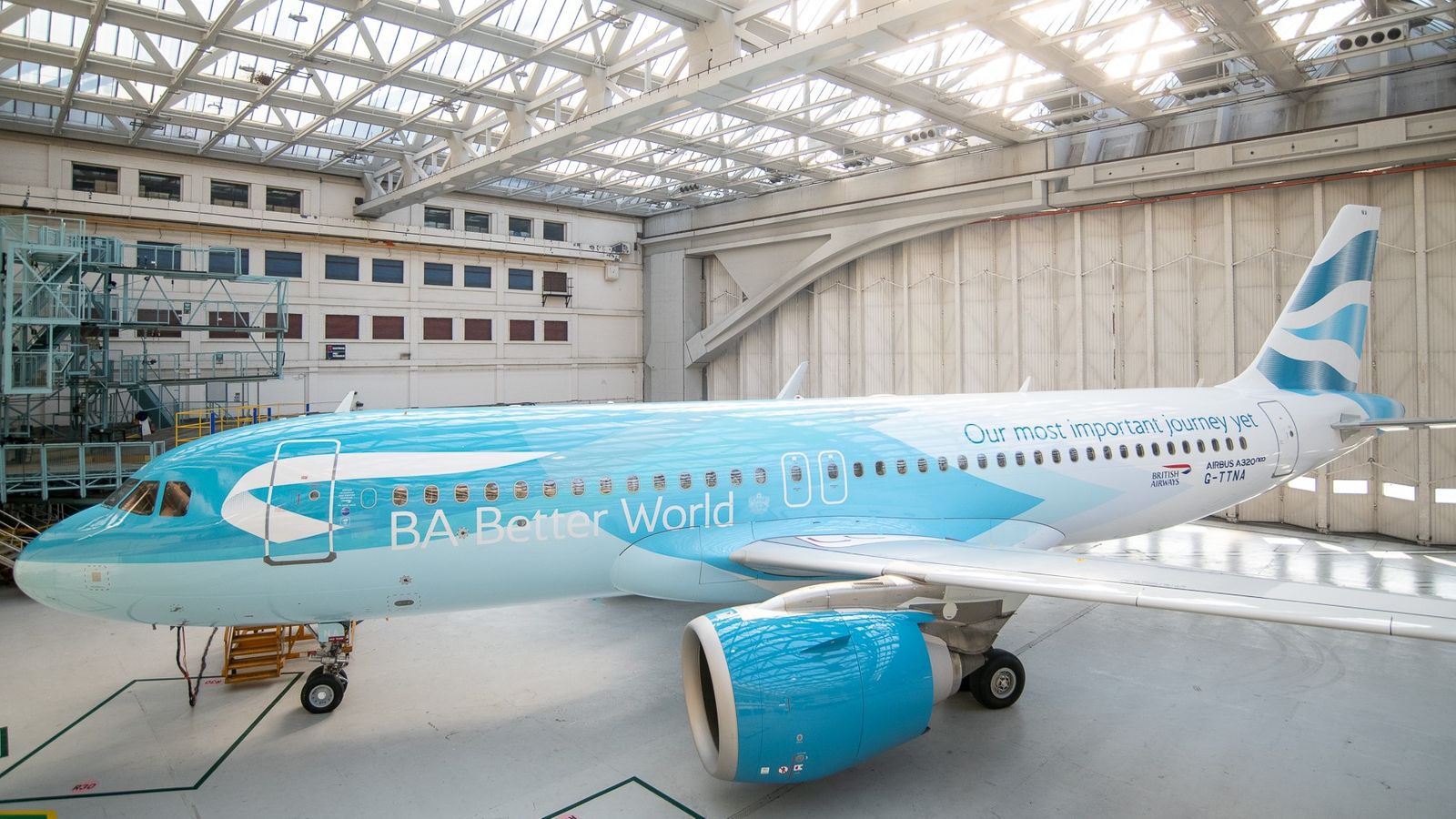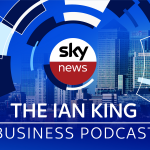British Airways, like every other major airline, has a problem.
How does it manage and sustain a business built on fossil fuels now that governments and increasing numbers of their customers have declared their carbon emissions incompatible with global climate targets?
The answer requires a leap of faith in new technology almost as great as the one taken by the Wright brothers when the Kitty Hawk’s wheels left the ground in 1903.
Aviation is responsible for 2% of total carbon emissions so doing nothing is not an option but, as of today, there are no viable at-scale alternatives for aviation fuel.
The industry has made much play of fuel efficiency but in 2019 demand for flights was rising four times faster than the savings made by efficiencies, and emissions had risen 30% in the previous six years.
Given these constraints BA’s immediate plans, unveiled in a Heathrow hangar under the slogan “BA Better World” in front of an Airbus painted in a one-off pale blue livery, are modest.
A new carbon-offset scheme will allow passengers to buy sustainable aviation fuel (SAF) credits, and all flights from London to Glasgow and Edinburgh during the COP26 global climate summit will partially run on SAF.
Gimmicks aside, chief executive and chairman Sean Doyle set out the three planks that BA say will make it a net-zero airline by 2050.
In the short-term he said it will make more use of carbon offsetting, planting more trees and encouraging passengers to offset their own journeys through similar schemes.
Please use Chrome browser for a more accessible video player
BA’s current services will also make a number of small moves towards sustainability, from fewer single-use plastics and more recycled material for in-flight amenities, to lighter seats and trollies, and switching from diesel to electric pushback vehicles.
Medium-term, BA aims to use sustainable fuel on 10% of its services by 2030, an ambitious target it says given just 0.4% of global flights use SAF today.
It has already invested in a US refinery that will start delivering SAF next year, and is involved in four UK-based SAF initiatives, backed by £15m of government money, including a potential new plant converting commercial waste into aviation fuel in Immingham.
Long-term it will invest in zero-emission aircraft including hydrogen-powered planes, and carbon-capture technology intended to remove and then bury carbon emissions.
Even if all these technologies deliver, by its own reckoning BA’s gross emission will still be at 43% of pre-pandemic levels in 2050.
But Mr Doyle insisted there is a sustainable future for aviation, not least because of our desire to resume travelling as soon as we are able.
“The airline industry is very aware of the challenges it faces in relation to sustainability but we do have solutions,” he told me.
“We’ve got new investment in technologies, we’ve got new forms of fuel, new forms of propulsion.
Please use Chrome browser for a more accessible video player
“And we’re also investing significantly in carbon offsetting.
“But you know travel is a hugely important part of the way we live our lives.
“It’s very important to the global economy, it’s very important to tourism.
“We’re a global community. We are an industry that will need longer to find a sustainable pathway, but we will find one. And I think we need to balance that out.”
A year into a job that has been dominated by the fallout from COVID, Mr Doyle is placing his faith and BA’s future prospects not just in technology, but in our desire to resume travelling as soon as we are able.
And he says growing climate costs do not mean in future it will become once again the preserve of the rich.
“I think we have a very exciting opportunity in sustainable aviation fuel, which will make flying sustainable, but also I think the economics will be very compelling.
“We will also give customers a choice in terms of how they want to address the carbon footprint of travel, and we will drive awareness.
“And I do think travel will still play a hugely important role in the way we live our lives.”
Like the oil industry, aviation will face scepticism about its commitments to become genuinely sustainable without ripping up its basic business model.
If it fails, governments and individual passengers will face fundamental questions about policy and personal choices.
And it will not have escaped Mr Doyle, or his counterparts at airlines around the world, that their best-ever performance in climate terms has come in the last 18 months, when they have barely flown at all.






















